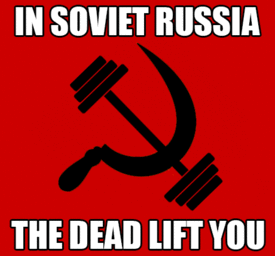Totally exhausted at much lower than usual heart rate
Options

blackcloud13
Posts: 654 Member
A quick question for the runners (and perhaps triathletes?) out there.
I've noticed that over the past two weeks, I've felt really exhausted towards the end of my runs. That's not so unusual in itself - but I wear an HRM and it indicates about 140 while I'm dying.
Normally, I run steady at about 155 and on good days can maintain 160 for a few miles. Exhaustion normal kicks in from about 167 upwards.
So I'm baffled as to why I've struggled lately at 140, (second half of 6 mile run; 5k run section of my triathlon on Sunday)
Any thoughts / ideas? My current thinking/options are
1. Man up! You're being lazy - train harder!
2. Take a week off - you're just a bit tired
3. It's because you've had a mild cold - all exercise is affected - it's just more pronounce in a run.
Any thoughts, ideas, advice?
In case it helps - some stats. I'm 52, 80kg, 185cm, resting heart rate 70 (in summer!), typical steady state running HR 150/155, typical stressed max 167/172
I've noticed that over the past two weeks, I've felt really exhausted towards the end of my runs. That's not so unusual in itself - but I wear an HRM and it indicates about 140 while I'm dying.
Normally, I run steady at about 155 and on good days can maintain 160 for a few miles. Exhaustion normal kicks in from about 167 upwards.
So I'm baffled as to why I've struggled lately at 140, (second half of 6 mile run; 5k run section of my triathlon on Sunday)
Any thoughts / ideas? My current thinking/options are
1. Man up! You're being lazy - train harder!
2. Take a week off - you're just a bit tired
3. It's because you've had a mild cold - all exercise is affected - it's just more pronounce in a run.
Any thoughts, ideas, advice?
In case it helps - some stats. I'm 52, 80kg, 185cm, resting heart rate 70 (in summer!), typical steady state running HR 150/155, typical stressed max 167/172
0
Replies
-
Could be diet. Are you eating carbs? Could be summer heat, but I would expect your heart rate to be up. Could be overtraining.0
-
first thought is overtraining...
what's your calorie goal/current training plan?0 -
This article from Training Peaks says you should take a rest week.
 While they didn't cite Science, TP seems like a pretty reliable source to me.
While they didn't cite Science, TP seems like a pretty reliable source to me.
Relevant:You are starting to push beyond the limits when you see a trend of having trouble elevating your heart rate into the upper end of zone 2 and into zone 3, accompanied by higher than normal levels of perceived exertion. When you notice higher perceived efforts to get to the upper end of zone 2 and into zone 3, three to four days out of five, then you are viewing a trend in fatigue.
This is when you should consider backing off and getting rest. Otherwise, we start to see consequences related to overtraining such as greater losses in power, loss of sleep, irritability and a lack of motivation to train. It is good to push your limits, but pushing them too far will result in less productive training.0 -
Thanks - this is very helpful.
I (recently) tend to train 5 days out of seven, with Sunday being the "mega" day (when I do all three), and the week days being shorter sessions (10 mile cycles or 3 mile runs, or about 90 mins in the pool)
I mix swimming, cycling and running as I have been training for a couple of triathlons (just finished the second one)
I'll do a little more research- but looks like the week off seems to be the way to go0 -
I've been there before. It's overtraining. Your legs are too tired to push up the heart rate. If you have been in this state a while it could also be parasympathetic overtraining. (Look up the symptoms to see if it fits)
Rest is the only solution. Training harder just digs you deeper into the hole. You may be able to get through it by just training "really easy"/no hard sessions for a while without complete rest.0 -
How long are your training runs? Do you always run at your steady rate of 155 BPM? You probably are doing most of your runs too fast.
I'm 53 and I aim for ~ 135 for my steady rate on 80% of my runs. I'm sort of following Phil Maffetone's guidelines (google him if unfamiliar).
Before I was doing this I'd tend to run in a range between 145-155 and found I was suffering from symptoms of over training (and I was running 6 or 7 days a week to compound things). Dropping my pace a little to bring down my heart rate allowed me to increase my training volume (distance/time on my feet) and feel good at the end of the run and not burnt out the next day. Within several weeks I was running more than I was before, and I've noticed now a bunch of weeks later that my 130-135 BPM pace has been creeping steadily higher, and that translates positively to race pace / race HR as well.
You might be fitter than me / farther along the curve but one thing you can't change is your age. Generally speaking for the average older human our max heart rate is going to be far lower than someone 30 years younger.0 -
a better way to diagnose overtraining is to monitor your heart rate at rest, preferably right when you wake up. There are apps that you can put on your phone that will utilize the camera lens/flash to take your heart rate, and many have been approved by the heart association for accuracy. A consistently elevated resting heart rate would, for me, be a better indicator of overtraining than fatigue at a lower heart rate because there is no base point there. If your resting heart rate has dropped from training, then your 140 becomes a different zone, see what i mean?0
-
There is only one caveat to measuring overtraining by resting heart rate. It can be low due to better training and being rested but it can also be lower due to overtraining to the point where the parasympathetic system becomes dominant.
If you have been monitoring it all along this would be apparent because it would first become cronically elevated then with more hard training (without recovery) it would suddenly drop to a new low level.0 -
We were never taught that; overtraining has always been characterized (with respect to the heart) by excessive stimulation of subclass beta receptors in the heart via over stimulation of antagonist / agonist nerves elsewhere (excessive resting release of EPI and NE and cortisol for example). That is an angle I have never heard/read/taught. I would love to read more about it because it might shed light into interesting case studies the department made us explore where you had normal heart rate and every other sign of overtraining.0
-
here are a couple of articles that appear to reputable on the subject.
http://www.ausport.gov.au/sportscoachmag/sports_sciences/overtraining_syndromeThe parasympathetic nervous system is also called the autonomic nervous system and controls vegetative functions such as making your heart beat, controlling breathing and digestive functions. Parasympathetic dominant symptoms include the resting heart rate ‘appearing’ normal but failing to rise easily during an effort. When the effort is reduced the heart rate falls very quickly.
http://www.rice.edu/~jenky/sports/overtraining.htmlIt appears that there are two forms of the syndrome. The sympathetic form is more common in sprint type sports and the parasympathetic form is more common in endurance sports. The results from various measurements taken during exercise physiologic testing differ between the two forms, but decreased overall performance and increased perceived fatigue are similar. In the parasympathetic form there may be a lower heart rate for a given workload. Athletes training with a heart rate monitor may notice that they cannot sustain the workout at their usual "set point." Fatigue takes over and prematurely terminates the workout. Regulation of glucose can become altered and the athlete may experience symptoms of hypoglycemia during exercise.
I won't comment on all of the differences between the two forms, but one example is resting heart rate. In the sympathetic form, the resting heart rate is elevated. In the parasympathetic form, however, the resting heart rate is decreased.
0
This discussion has been closed.




